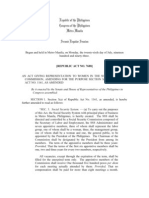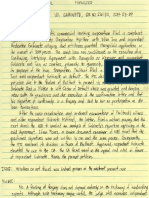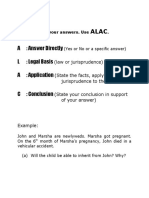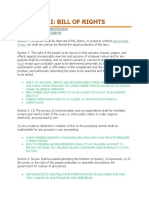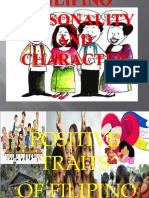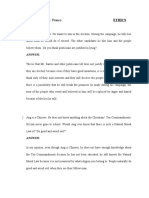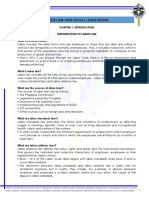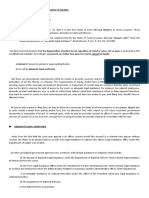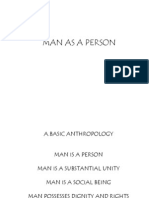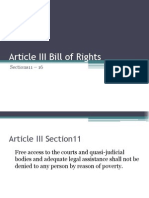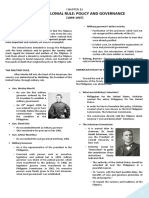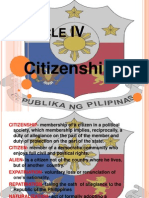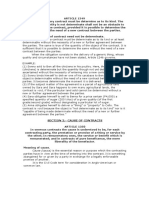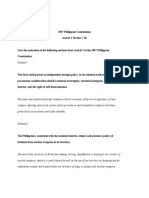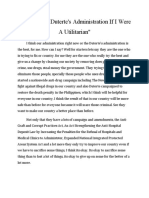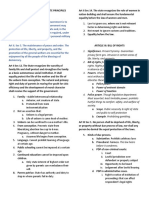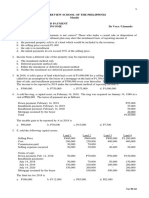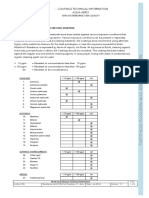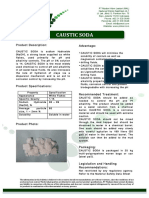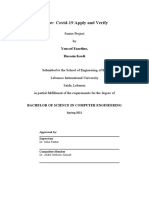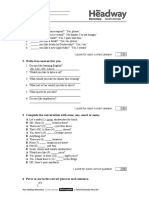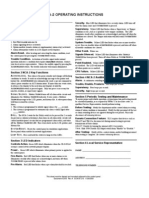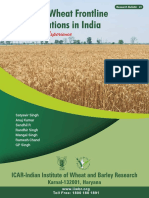100% found this document useful (2 votes)
4K views2 pagesARTICLE 15 - Sections With Explanation
The document discusses the importance of family to the state and society. It recognizes the family as the foundation of the nation and requires the state to strengthen and promote family solidarity. It defines marriage as the foundation of family and mandates the state to protect it. The state is also required to defend the rights of family members including the rights of spouses to found a family, rights of children, rights to living wage, and rights to participate in policymaking. The family has the duty to care for elderly members and the state can assist through social security programs.
Uploaded by
Jennifer RueloCopyright
© © All Rights Reserved
We take content rights seriously. If you suspect this is your content, claim it here.
Available Formats
Download as DOCX, PDF, TXT or read online on Scribd
100% found this document useful (2 votes)
4K views2 pagesARTICLE 15 - Sections With Explanation
The document discusses the importance of family to the state and society. It recognizes the family as the foundation of the nation and requires the state to strengthen and promote family solidarity. It defines marriage as the foundation of family and mandates the state to protect it. The state is also required to defend the rights of family members including the rights of spouses to found a family, rights of children, rights to living wage, and rights to participate in policymaking. The family has the duty to care for elderly members and the state can assist through social security programs.
Uploaded by
Jennifer RueloCopyright
© © All Rights Reserved
We take content rights seriously. If you suspect this is your content, claim it here.
Available Formats
Download as DOCX, PDF, TXT or read online on Scribd
/ 2

